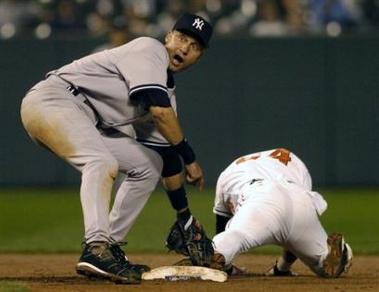 Planting Trees in Nitzan (Photos!)
Planting Trees in Nitzan (Photos!)
 As planned we went down to Nizan today. Basically there are thousands of Gush Katif refugees that still have no place to live – not even temporarily. They are hopping around hotels and staying by family and friends till the refugee camps are completed. And despite media and government lies to the contrary they are far from completed. See for yourself...
As planned we went down to Nizan today. Basically there are thousands of Gush Katif refugees that still have no place to live – not even temporarily. They are hopping around hotels and staying by family and friends till the refugee camps are completed. And despite media and government lies to the contrary they are far from completed. See for yourself... Ahh – home sweet home! Basically it’s a shack with a slab of plaster on the walls and a pretty red roof. Yep – those Gush Katif settlers sure got compensated well. Don’t believe the lies!
Ahh – home sweet home! Basically it’s a shack with a slab of plaster on the walls and a pretty red roof. Yep – those Gush Katif settlers sure got compensated well. Don’t believe the lies!  Thrown out of beach front paradises, and thrown into these – if they were lucky!
Thrown out of beach front paradises, and thrown into these – if they were lucky!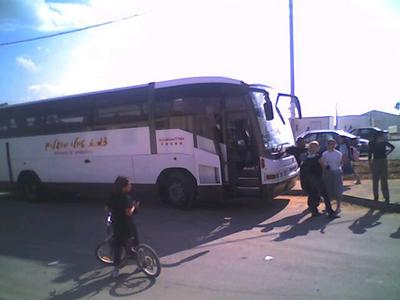 So a bus load of us went down to help plant trees. And make this refugee camp a bit more habitable.
So a bus load of us went down to help plant trees. And make this refugee camp a bit more habitable.  Bulldozers and construction vehicles abound as they frantically work to meet the deadline they already missed months ago...
Bulldozers and construction vehicles abound as they frantically work to meet the deadline they already missed months ago...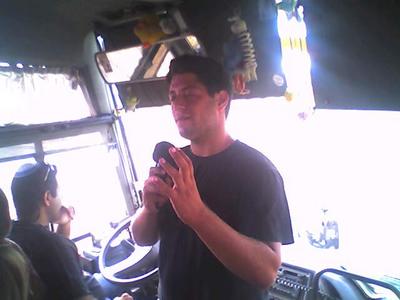 This volunteer gave us a tour of the “neighborhood.”
This volunteer gave us a tour of the “neighborhood.”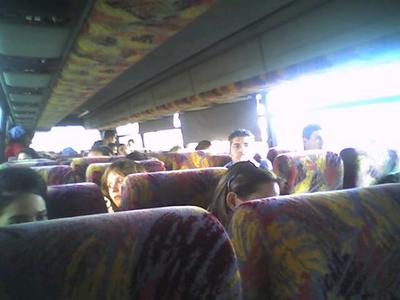 For us it was a very depressing sight.
For us it was a very depressing sight.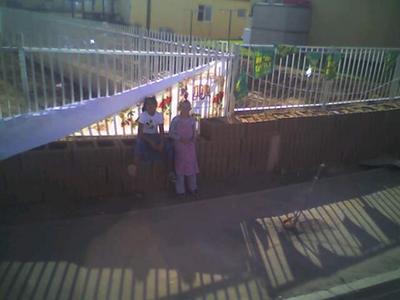 We past loads of children – many were riding bikes or playing with each other.
We past loads of children – many were riding bikes or playing with each other. This section was reportedly built months ago according to certain politicians for the 500 families of Neve Dekalim.
This section was reportedly built months ago according to certain politicians for the 500 families of Neve Dekalim.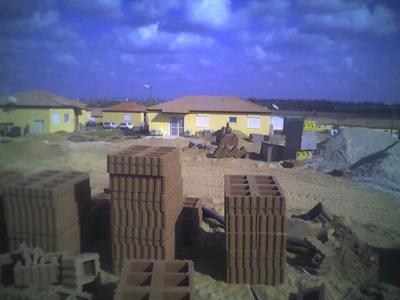 As you can see there is still a long way to go until those families could in fact begin to move in.
As you can see there is still a long way to go until those families could in fact begin to move in. Just take a look at what these walls are made of... he told us the kids can’t even play soccer nearby because if the ball hits the wall it will dent it or crack it.
Just take a look at what these walls are made of... he told us the kids can’t even play soccer nearby because if the ball hits the wall it will dent it or crack it. 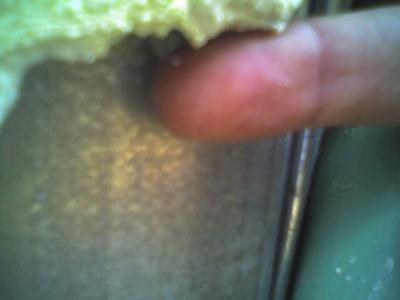 The plaster they slap on isn’t even half the width of my finger.
The plaster they slap on isn’t even half the width of my finger. The people are strong like you won’t believe and make the most with what they have which isn’t very much. Most Bungalow Colonies in the Catskills, NY are even nicer. There aren’t any stores, no schools, just one Kupat Cholim (medical clinic), one “children’s center” (actually a tent) and could you believe it – he told us there was only ONE social worker for the thousands of people they are dumping there! Where is CNN now?
The people are strong like you won’t believe and make the most with what they have which isn’t very much. Most Bungalow Colonies in the Catskills, NY are even nicer. There aren’t any stores, no schools, just one Kupat Cholim (medical clinic), one “children’s center” (actually a tent) and could you believe it – he told us there was only ONE social worker for the thousands of people they are dumping there! Where is CNN now? 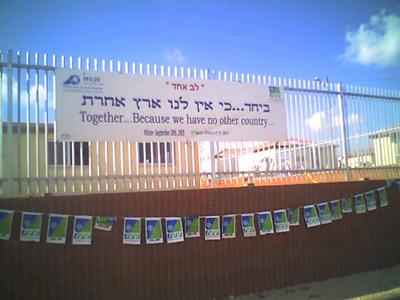 "Together... because we have no other country." (My editorial: We have no other country were we could settle with out getting thrown out eventually... oh wait...)
"Together... because we have no other country." (My editorial: We have no other country were we could settle with out getting thrown out eventually... oh wait...)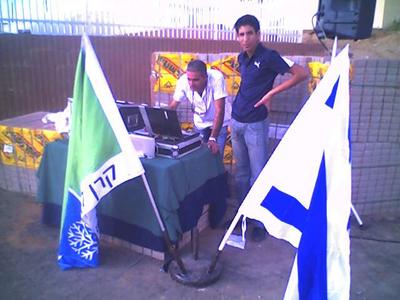 We were greeted with music and fanfare...
We were greeted with music and fanfare...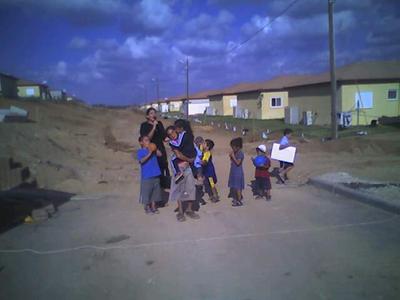 And by the local children.
And by the local children.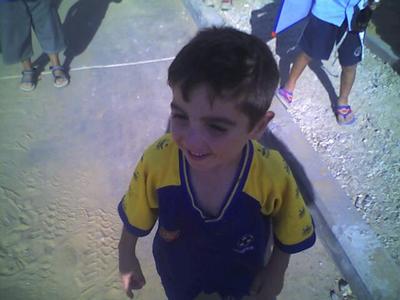 Amazingly – they were all smiles. (I told you these people are so strong!)
Amazingly – they were all smiles. (I told you these people are so strong!)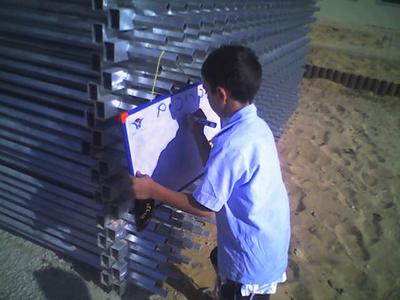 “Welcome to Nitzan” he writes.
“Welcome to Nitzan” he writes.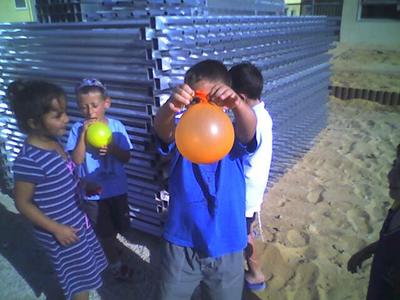 And of course who could forget the balloons!
And of course who could forget the balloons!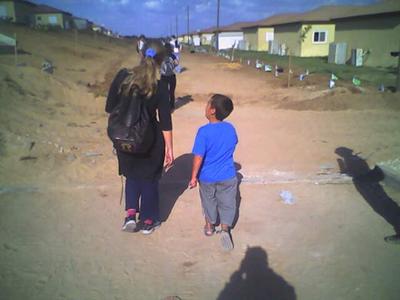 We made friends very quickly. These kids were just so wonderful!
We made friends very quickly. These kids were just so wonderful!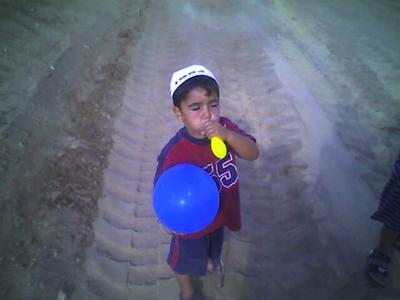 ...and more balloons.
...and more balloons. 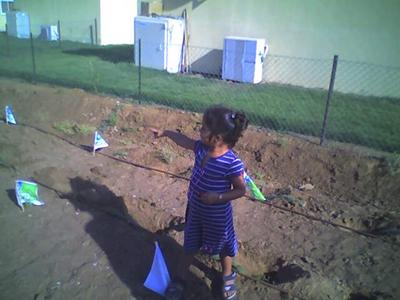 This little girl directed us...
This little girl directed us...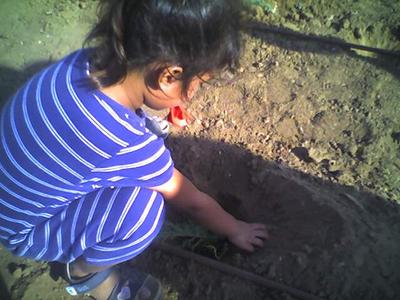 ...and showed us how to plant the trees.
...and showed us how to plant the trees. All the kids were really so excited to help us.
All the kids were really so excited to help us.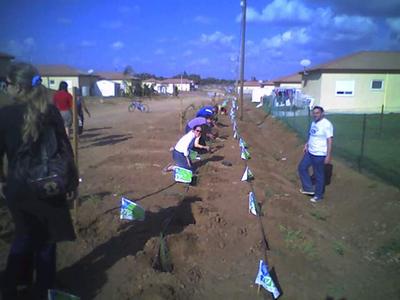 And we of course were excited to help them!
And we of course were excited to help them!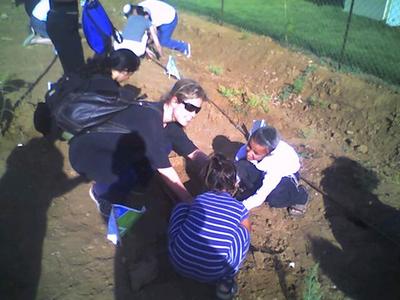 They really cheered us up! (You’d think we were there to cheer them up but not so!)
They really cheered us up! (You’d think we were there to cheer them up but not so!)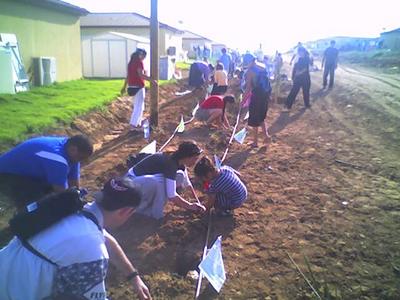 Together we planted over four hundred tree saplings.
Together we planted over four hundred tree saplings.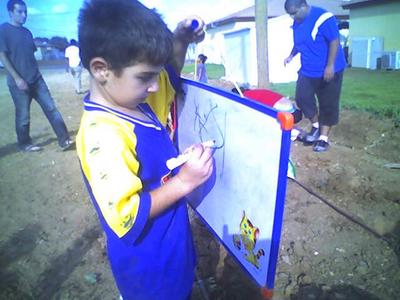 I asked him to translate...
I asked him to translate...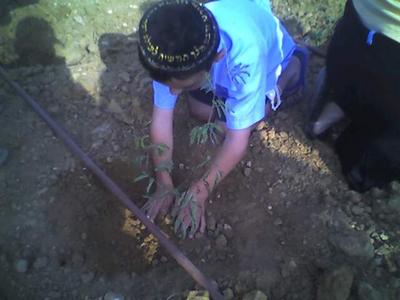 These children worked faster than us.
These children worked faster than us.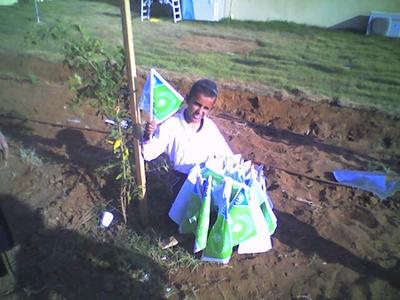 And collected all the flags that were used to mark the spots to plant.
And collected all the flags that were used to mark the spots to plant.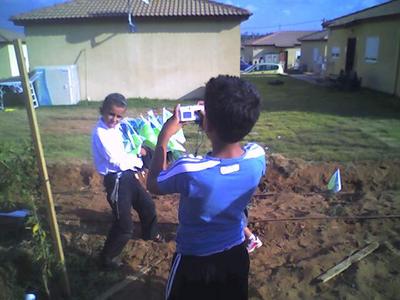 (And yes, notice the dati and chiloni kids get along just fine.)
(And yes, notice the dati and chiloni kids get along just fine.)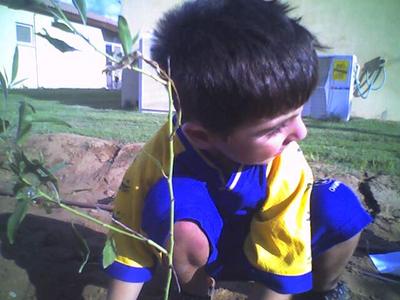 Azahu Kif! (What fun!)
Azahu Kif! (What fun!)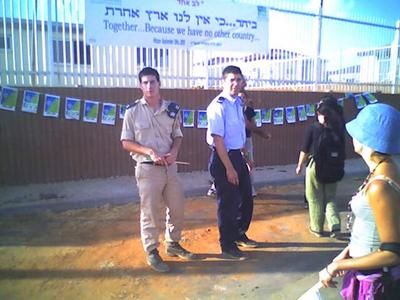 And indeed, the IDF was there to help too.
And indeed, the IDF was there to help too.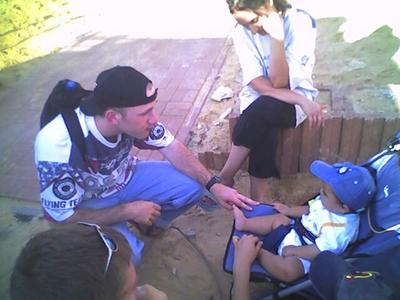 After we finished we had some fun playing with the local babies.
After we finished we had some fun playing with the local babies. 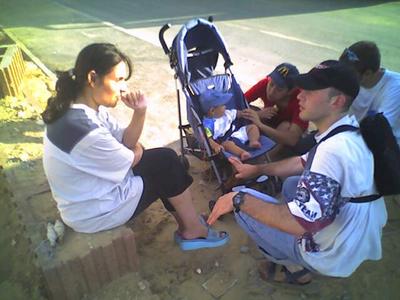 This woman explained she was a warehouse worker. Now she is out of work and has no way of making a living.
This woman explained she was a warehouse worker. Now she is out of work and has no way of making a living.
12/27/05 Update: For links to more postings from this photo series click here.

